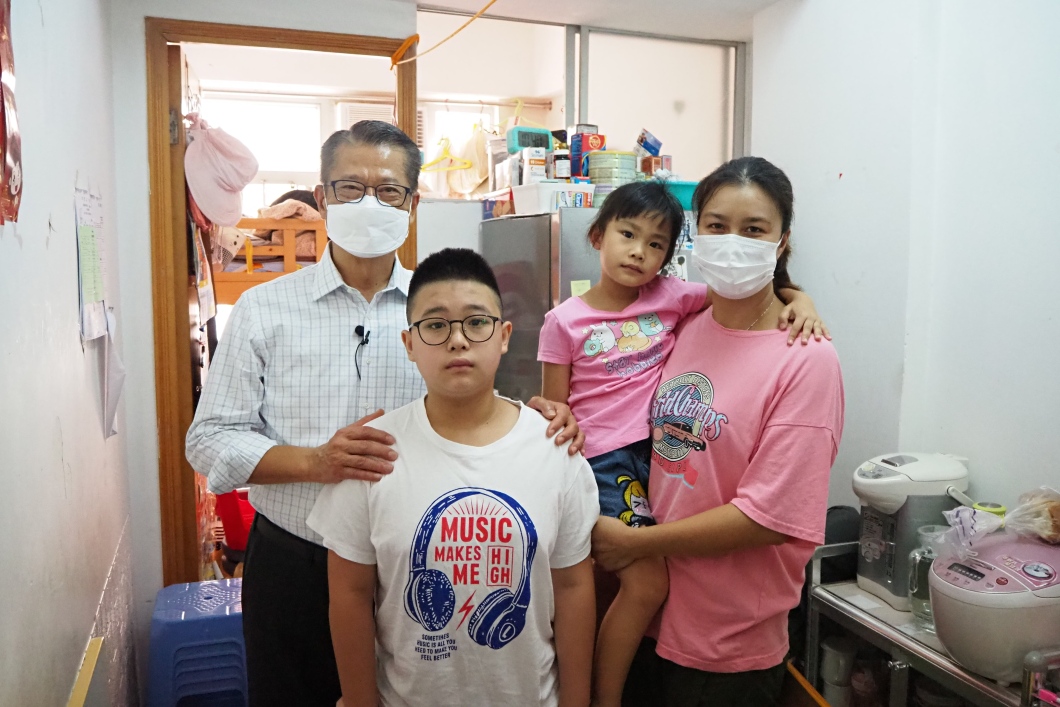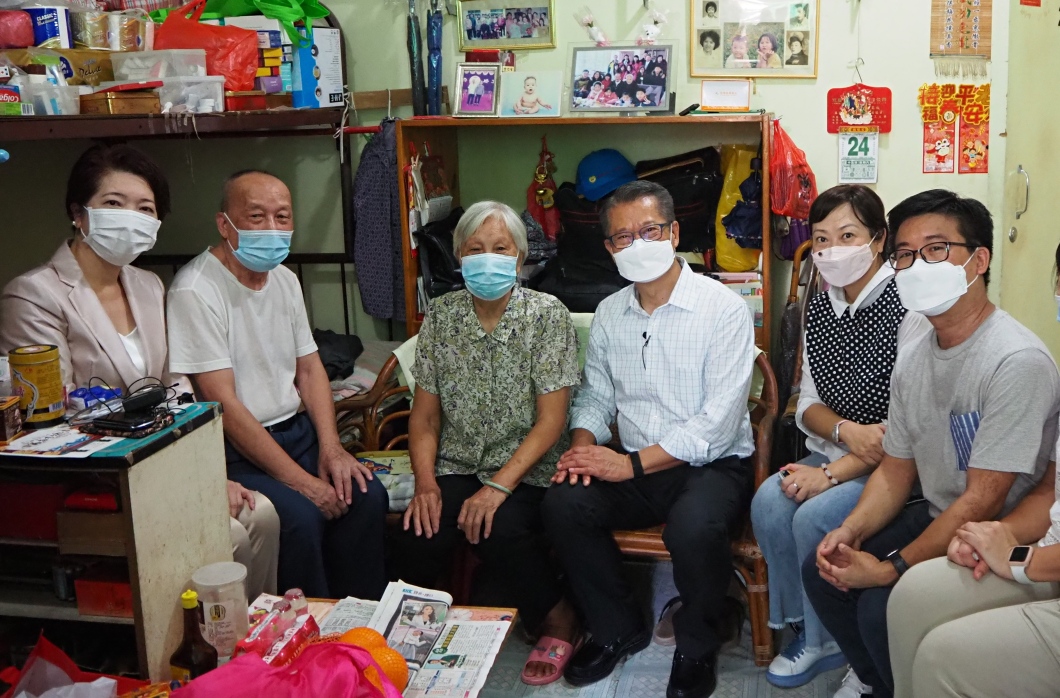Blog
Working together to get rid of subdivided flats
I visited some households living in subdivided flats and public housing in Shum Shui Po yesterday to learn more about the daily lives of low-income families and their thoughts. Housing has always been the most imminent problem for grassroots. The high rents of subdivided flats are heavy burden to them. The lack of space also deprives their young children of suitable living and learning environment. It can be said that housing is the biggest pain point in many people’s daily lives.

|
| I visited some households living in subdivided flats and public housing in Shum Shui Po yesterday. |
The problem of land and housing has been troubling our society for a long time. Given the continuous shortage in land supply, the waiting time for public housing is getting much longer and the living condition of the grassroots is deteriorating. At the same time, property ownership has become more difficult even for the middle-class. The shortage in supply of commercial space for a time has also led to expensive rent and constrained the development of different sectors.
For some time, Hong Kong’s political disputes and malfunctioning of the Legislative Council have hindered the implementation of many policies and reforms. Now, the Central Government has helped us get out of this predicament through the legislation of the Hong Kong National Security Law and the enhancement of the electoral system. Given this favourable new environment, what we should do next is to work in full speed with determination to break through the biggest bottleneck of Hong Kong’s development.
Xia Baolong, the director of the Hong Kong and Macao Affairs Office of the State Council recently talked about the wish that when our Country realises the second centennial goal, the implementation of the “One Country, Two Systems” principle in Hong Kong will be more successful and the society will be more harmonious. By then the heart-wrenching problem of housing will be greatly improved, Hong Kong’s subdivided flats and caged homes will be eliminated, allowing a better and sufficient development for our society. Shouldering up these goals, the land and housing problem, the culprit for Hong Kong’s under-development, has to be resolved. Other land-related problems will also be addressed and tackled subsequently. In the coming twenty or so years and no later than 2049, i.e. when our Country realises the second centennial goal, Hong Kong has to get rid of the problem of subdivided flats.
Apart from the clear target of resolving the problem of subdivided flats, we also have to make the best efforts to address other aspects of our housing problem, including expensive in cost, small in space and hard to afford. In fact, there are two big dilemmas behind this phenomenon, i.e. the disparity in income level and the disparity in asset.
Housing is the key reason behind these two big dilemmas. If we could provide suitable, affordable and reasonable living space to lower people’s housing costs or make home ownership easier, on one hand, this could resolve the problem of those expensive and small subdivided flats, while on the other hand, it could enhance people’s living quality and allow people to accumulate asset by greatly lower the expenditure in rent.

|
| I visited some households living in subdivided flats and public housing in Shum Shui Po yesterday. |
It is never easy to break through deep-seated problems. If our mind set is trapped by the past experience or path, we will only end in feeling helpless when trying to tackle Hong Kong’s problem of land and housing. Yet as Hong Kong has restored governance from chaos over the past few years and is now heading towards development, we must be more determined to re-evaluate Hong Kong’s land and housing problem from a broader perspective. We must not give up any options easily and keep fighting with will and determination for our goal.
The problem of living space and cost has deeply affected the development and stability of our society. The high cost of living space not only make it difficult for young people to save money and accumulate asset, but also deter them from being innovative and adventurous. The high renting cost faced by enterprises also hinders the diversification of Hong Kong’s economic development. Tackling the land and housing problem is not just an economic or financial matter. It is also about the long term social stability, the diversity of our job market and the vibrancy of the economic development. It is an economic issue, a livelihood issue, and also a significant political issue.
We must have the strong will and determination to fight hard and address what the people really care and concern. Under the “One Country, Two Systems” arrangement, Hong Kong could develop with the system of capitalism and market economy. However, implementing the “Two Systems” principle does not imply the serious wealth disparity in Hong Kong is reasonable. As the President Xi Jinping said, we have to make efforts to tackle the problem of uneven and inadequate development and address people’s most imminent concerns, and also have to achieve more noticeable and substantive progress in promoting the common prosperity of all the people. Looking back at Hong Kong, the problem of land and housing has to be resolved with substantive progress. We have to increase the land supply in short, medium and long term, streamline those overcomplicated procedures in our system, and substantially increase the long term land supply and establish a land reserve by reclamation and other means. We must always serve the overall interests of the society and fight hard for wellbeing of our people.
July 25, 2021